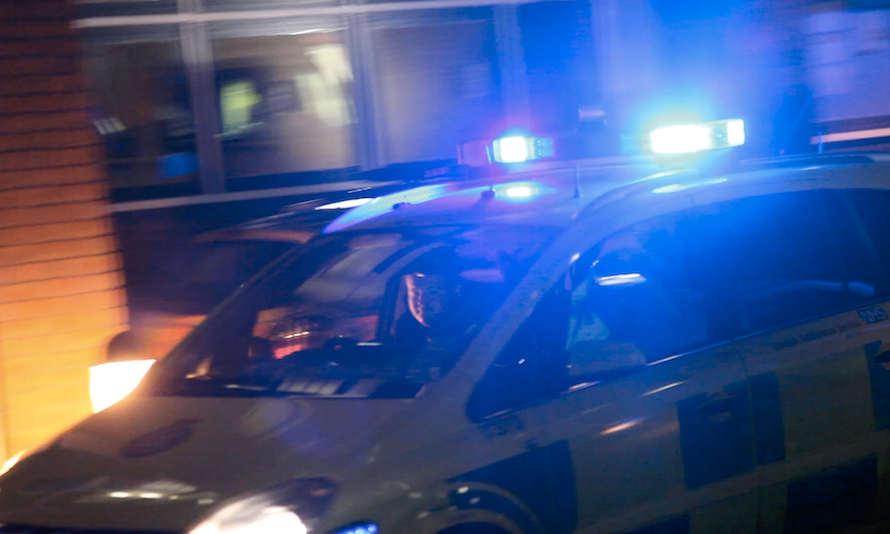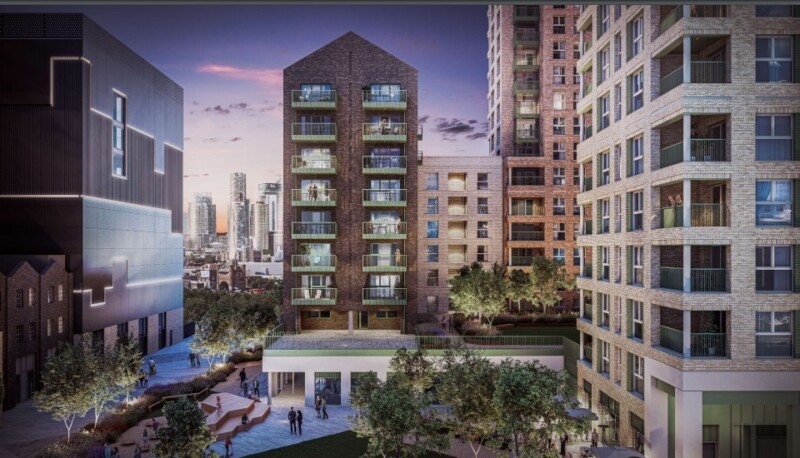Metropolitan police officers are openly defying orders not to wear badges appropriated by the far right and linked to white supremacy.
In July, the force’s chief, Mark Rowley, banned officers from wearing the “thin blue line” badge saying that in the US an equivalent symbol had been used by “hard-right groups”.
However, images have emerged of Met officers wearing the symbol late last month as they policed a stand-off between LGBTQ+ rights supporters and a rightwing group over a drag act’s performance at the Honor Oak pub in Lewisham, south London.
Campaigners said it was “worrying” that officers at the protest organised by Turning Point UK (TPUK) felt they could challenge Rowley’s authority with apparent impunity.
In the US, the police’s use of the thin blue line symbol has proved divisive, with some forces banning it after it was worn on face masks by officers policing Black Lives Matter protests, with the symbol also seen at a white supremacist rally in Charlottesville, Virginia in 2017 and the insurrection at the US Capitol in 2021.
However, the wearing of it by UK police has been supported by the home secretary, Suella Braverman, who questioned Rowley’s banning of the badge, and in her recent Conservative party conference speech singled out firearms police for praise, describing them as “the thin blue line”.
Her reference to firearms police concerns the hundreds of Met officers who last month temporarily stepped back from duties after a colleague was charged with murdering Chris Kaba, 24, who was shot last September.
Rowley banned his officers wearing the insignia – a black and white Union flag with a thin horizontal blue line – before policing Pride celebrations amid concerns it could offend the LGBTQ+ community.
That officers chose to wear it during sensitive policing at a protest by a rightwing group against a storytelling session by the drag act That Girl is, say campaigners, pointedly provocative.
The UK’s thin blue line badge was created as a mark of remembrance for fallen officers.
One officer wearing the badge at the protest was pictured beside rightwing activist Laurence Fox days after he made misogynistic remarks about the political journalist Ava Evans.
Kevin Blowe, coordinator of the Network for Police Monitoring (Netpol), which works with communities to expose violent and oppressive policing, said: “Within the particular circumstances of Honor Oak, the need for greater sensitivity was apparent and the fact orders weren’t followed is worrying.
“If you’re policing that kind of incredibly sensitive situation, it’s probably a good idea to make sure you’re not identifying yourself with people from the far right.”
skip past newsletter promotion
Our morning email breaks down the key stories of the day, telling you what’s happening and why it matters
“,”newsletterId”:”morning-briefing”,”successDescription”:”Our morning email breaks down the key stories of the day, telling you what’s happening and why it matters”}” config=”{“renderingTarget”:”Web”}”>Privacy Notice: Newsletters may contain info about charities, online ads, and content funded by outside parties. For more information see our Privacy Policy. We use Google reCaptcha to protect our website and the Google Privacy Policy and Terms of Service apply.
after newsletter promotion
Blowe added that the fact some officers felt emboldened enough to ignore the Met commissioner suggests an ugly mentality was alive and well, despite Rowley’s attempts to change the culture of the force, which was described in a report earlier this year as institutionally homophobic, misogynistic and racist.
“There’s a general kind of mentality within the police that is much wider than just a few officers, and there’s a basic lack of accountability for the way that officers act,” added Blowe.
At another Honor Oak protest in August – the month after Rowley intervened on the wearing of the thin blue line – an officer was spotted wearing a Celtic cross, which is a common white supremacy symbol and used by neo-Nazis worldwide.
However, other UK police forces have doubled down on the thin blue line as a positive symbol – it was created as a mark of remembrance for fallen officers – with a chief constable offering to pay for such badges for his officers. Nick Adderley, the Northamptonshire chief constable, said he would not allow a minority to “twist the meaning” of the patch, which is produced by the Care of Police Survivors charity and sold to raise money for the families of officers who died in the line of duty.
The Met has been contacted for comment.
https://www.theguardian.com/uk-news/2023/oct/14/london-police-defy-ban-on-badges-linked-to-far-right-and-white-supremacy





